#the Oedipus complex is strong with this one
Explore tagged Tumblr posts
Text
Yesterday I posted a thread about Istvan's and Erik's emotional incest and decided to bring it on Tumblr too, because I think I did a decent job.
Why I think I can say something about psychology? Well, I've been having a special interest for it for almost all my life, my mom is a therapist with almost 20 years of practice, we discuss her work often, I read books about psychology (my favorite specialists are K.G. Jung, M.L. von Franz and I.D. Yalom). So yes, I'm qualified. Why be shy and demure when I can not to?
So let's begin!
If you don't know, it's quite normal when small kids (3-6 y.o.) have a "crush" on their parents. Boys may think that they will marry their moms, a lot of girls think the same about their dads. This is called Oedipus' complex and Electra's complex respectively. Despite these terms were made for straight (and cis) people, we can and should adapt them for queer people too. For example, I perfectly remember these experiences with both of my parents (I'm under a bisexual umbrella). For Erik I will use the term "Oedipus' complex", simply because he's a man and this term is masculine.
So. This is pretty normal for a lot of people and usually passes without a trace (most of people who experienced it even don't remember about it). But this scenario happens in healthy families with trustful relationships, where parents and kids love each other. We know a little about Erik's family and can only use his own words, when he said his parents were weak and couldn't raise him properly. I believe this means he hadn't had a close and sincere relationship with his parents (I also see him as autistic, and his neurodivergence made his relationships with people more difficult). This is very possible that before Erik met Istvan, he hadn't had a man who could've been his father figure, someone who could've taught him how to be a man, too, who showed him that it's possible to fight for a place under the sun respect and other needs.
But Istvan came, he was strong and independent, he took what he wanted and needed, and for Erik he became a man to follow, basically a father (maybe Istvan was the same age as his real father was, we don't know). A father he never had, someone who can protect and teach him, to take care of him, to become someone whom Erik can be attached to. You know. A family.
I tend to think that Istvan became a father figure for Erik first, and someone to have Oedipus' complex, gay edition second. Erik also idealized him, because he HAD TO deal with fact that Istvan actually murdered his family and took away everything he had, but gave so much more than they ever did instead. So he had to tell himself that Istvan is better than them and that he was in his right, because the strongest wins and lives and weak are useless and deserve to die.
As I said, Erik hadn't had a healthy base to have his Oedipus' complex. Since this is a quite necessary thing for majority of people, it was Istvan to become such a base. And here are a few factors why this complex gone fucked up:
- Erik is too grown-up for it. As I mentioned, the normal age is 3-6, and I believe Istvan met Erik when he was 12-13 already, what is definitely too late,
- Istvan is not his relative (maybe Erik was able to perform actual incest, but whatever, the fact they aren't related makes the situation worse),
- Erik developed an unhealthy codependency for Istvan. He (as I see) was hungry and desperate for connections, he idealized Istvan, he needes him more than anything,
- he was in the age when most people have their first sexual crushes (I don't say all 13 y.o. teens should fuck, but a majority of them do have sexual fantasies of different kinds, it's just normal).
So, all of these factors collided and grew into a rather unhealthy mixture that made Erik's late and already fucked up Oedipus' complex in an actual crush.
I think his jealousy and desire to have Istvan only for himself have the same roots. When you have only one person you care about and this person is the only one who shows care for you, you are very likely begin to think they should belong to you and only you and you must be their everything, or else you are useless and no one will ever need you. You begin to think that you should give them anything and everything they need (because they did the same thing to you) and begin to be jealous and angry (and discarded) if they dare to fulfill some of their needs with other people.
Actually, this wish to be "together and only together" also has roots in familial ties (or lack of them). I remember a stunning autobiography of (my favorite) Elias Canetti. When he was a teenager, his father died and he became a man for his family and literally tried to become a husband for his mom, because he loved her so. Thankfully, they both weren't so fucked up, and this situation didn't become worse and didn't end up in an incestuous bond. But you see my point, I think. If a child/teen has a parent (or parental figure) on whom they can have a "crush", this thing can happen. This - and something much worse.
So I think for Erik Istvan is everything. His salvation, his mentor, his father he'd never had, his lover... He will be anybody and everybody for Istvan, and he doesn't think there's something very wrong with it. I can perfectly see a 14 y.o. Erik who kisses Istvan and says he wants to be his man. He is already taller than him and have broader shoulders - not a boy anymore, but a young lad. Istvan is proud of him - and of himself too. I wonder if he could resist a temptation to accept his feelings...
Gosh, they are soooooooo problematic AND I'M HERE FOR IT.
I hope you liked my post! Also I strongly recommend Canetti's autobiography, it's great! It has three parts, I found both original titles and English ones for them: Die Gerettete Zunge/The Tongue Set Free, Die Fackel im Ohr/The Torch in My Ear, Das Augenspiel/The Play of the Eyes.
(Shio just finished his paper for university and makes literature references even in his internet posts...)
(also please give some attention to my original twitter thread <:3 the link is in the beginning)
P.S. a lot of thoughts about them were given to me by this absolutely amazing fic! If you love Isterik, give it a try, it's so worth it!
#kcd2#kingdom come deliverance#kingdom come deliverance 2#kcd#erik kcd2#istvan toth#istvan x erik#isterik#my god these two are so problematic I love them#this is what you get when you're an amateur therapist#I am in NEED of DLC about their relationship and how it began
32 notes
·
View notes
Text
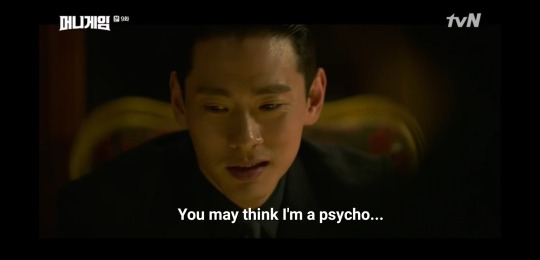
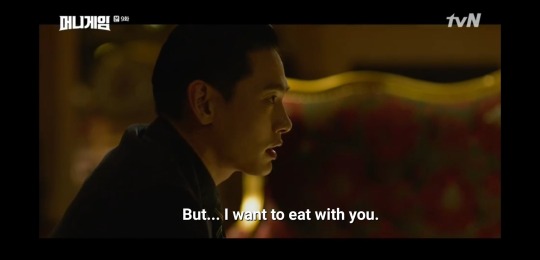
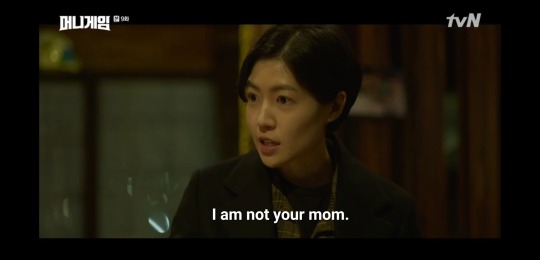
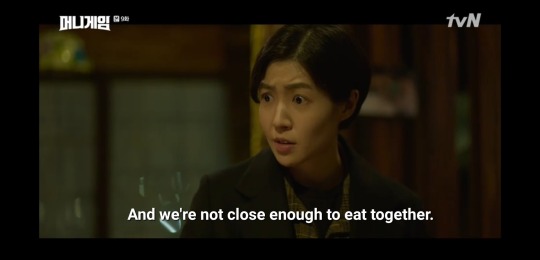
Let me make a detour from my usual KDrama rare pairs to fangirl scream about this pairing. This show has tropes galore to make a shipper like me go squeeing to high heavens. Love this for me and the show, truly❣️
While not wholly a rare pair as this pairing from the drama itself has a number of high quality FMVs to fangirl over - and the overwhelmingly more popular ship with viewers - and there exists a tiny amount of fics in Korean, on Ao3, the fics (in English) for this pairing is basically nonexistent. A sad state of affairs, certainly, but the main female character is generally beloved, and the number of FMVs enough to tide me over for a time, so all in all, this is a very wonderful ship for me to have fun with.
Compared to some of my other rare pairs, this ship is unironically a major, major comfort! There is extremely little frustration to be had although fan content is not in abundance either. A lovely, sexy and peaceful ship 🥰🥹
#money game#KDrama#Lee Hye Joon#Eugene Han#Shim Eun Kyung#Teo Yoo#this pair is lit ❤️🔥#RED is their colour#or more precisely his colour for her (and his mother) LOL#the Oedipus complex is strong with this one#but it is done so well#because what is better than an antagonist who wants to be a better person for his lady love?#Oedipus complex or not#and Eugene Han is such a sexy simp too#one has to see it to believe it truly#this show has ALL THE CRACK#the writer really fed us shipper fangirls a FEAST#it brightened up this sober drama about financial manipulation LMAO 😆#also made me feel like I watched an AU of my Kang Kwon Joo/Mo Tae Gu rare pair play out onscreen#just chef’s kiss#I love Lee Hye Joon as a character too#and I enjoy finding shades of Kang Gil Young in her#ah just the best#🥰🥰🥰#LHJ deserves all the ��adoration’ she received too#just fantastic because this is not a Romance yet she is still ‘worshipped’#nothing gets me more than female characters getting the love and simping they so deserve#the best part is the fact that she got it in CANON#unless it is a ROMANCE (and even this is not a guarantee these days) we don’t always have that for the FCs#I love Money Game and writer-nim for this
3 notes
·
View notes
Text
Every time people try to pretend there’s no existence of racial bias in the way Sydcarmy is dismissed, an angel loses their wings.

You know what’s exhausting? Watching people bend over backward to insist that there are no racist or misogynoir undertones to the way Sydcarmy gets dismissed as a valid ship.. like let’s just be real for a second.
I understand people who don't ship it or believe in the ship because they prefer to take the show at face value, focus on different dynamics, or interpret relationships in other ways. However, the people who deny any validity to believing their relationship is more than meets the eye? That needs to be addressed.
People will swear up and down that their issue isn’t with Sydney, that they love her, and that they "just think Carmy should go to therapy first"—but then in the same breath, you'll catch them romanticizing the hell out of his dynamic with Claire, a relationship that was unhealthy, regressive, and rooted in avoidance rather than growth. @yannaryartside covers the very strong existence of the Oedipus complex and the fulfillment of Carmy’s mommy issues through Claire’s behavior and manipulation in their relationship, and I agree wholeheartedly.

Let’s talk about the “Carmen needs therapy before a girlfriend” argument. Let’s be real—Carmy needed therapy when he was with Claire too, but nobody seemed to mind that. In fact, everyone around him—Richie, the Faks, even the audience—enabled this idea of Claire as a “good” thing for him, as if she wasn’t feeding into his worst tendencies. And the most infuriating part? Claire was, in fact, manipulative. (Again, covered by @yannaryartside .)
She didn’t do it in an overt, villainous way but used **soft, socially acceptable manipulation**—the kind that gets ignored when it’s coming from a conventionally attractive, non-threatening, quirky white woman.
Claire’s Manipulation: The Softness of a Manic Pixie Dream Girl

People like to act like Claire was just a character who wasn’t well-written or worth the time for analysis, but that was the entire point of her: to feel underwhelming, to feel forced into place. In many ways this is true of course, she's under/not well-written in ways, and people think she was simply there, offering Carmy what she believed (and convinced him to believe) was love, when in reality, she inserted herself into his life in a way that preyed on his vulnerabilities and pre-existing issues.
And before anyone jumps in with "she didn’t do anything wrong!"—let’s actually look at how she operated.

- She sought him out when he wasn’t in a good place.
She made it a point to go out of her way to get his real number after being given a fake one. If course she uses that classic manipulative play it off as a joke move when she threatens him but not the best way to start. I know it's been said before, but can we imagine if the roles were reversed? Would we not think that creepy?
- She made it about her when he was struggling.
When Carmy tried to set a boundary, Claire framed it as him pulling away from her, rather than him dealing with his own issues. She encouraged his avoidance, gave him an easy escape from his problems, and then was surprised—and (validly) hurt—when reality came crashing down. Even when Carmy was harsh in breaking up with her, he was speaking from a place of truth for himself. To be with her, when he was so damaged and not really in a space of genuinely liking her, was bullshit.
- She used nostalgia as a tool.
Claire’s entire presence in Carmy’s life was based on a past version of him that no longer existed. Just as Carmy didn’t really see Claire, but rather a projected version of her shaped by his family (and a little bit of Sydney), Claire didn’t love him—she loved the idea of Carmy she had from childhood. And she expected him to fit back into that mold, to regress into a state where he could blow off work to hang out with her and forget his partnership with Sydney, someone he's meant to work with and has a responsibility to be with. That’s not love. That’s entitlement to a person’s growth—or lack thereof.
And yet, people ignore all this because Claire fits their idea of what a love interest should look like to them. She’s non-threatening, familiar, digestible. They don’t question why she feels right, - white - while Sydney—who actually challenges Carmy, who understands him in ways Claire never could—gets written off as “not romantic.”
Claire, for "clarity" or "peace" (ugh)—is simple. She's the painted picture of a woman who puts others before herself, the quirky manic pixie dream girl inching too close to the camera, sneaking her way into his life. People argue it feels like the same effect Sydney has on Carmy, but it's not the same at all. Claire is easy. For Carmy. He can fuck up, regress, and stay stagnant, and she’ll applaud him for it. "Never ever, ever apologize."

Sydney is the opposite. She calls him on his shit, and she sees him for who he really is. Sydney is the real peace for him (how many times do we need to bring up that damn panic attack, the table scene, and strange currencies? Thank you, @chefkids ).

Phew...
Moving on,
The Hypocrisy of the “Carmy Needs Therapy First" Argument

Back to the “Carmy needs therapy before a relationship” excuse—because wow, is that just selective. People only seem to apply it when Sydney is involved, not when Claire is around. It’s the most transparent double standard imaginable. I’ve seen one too many “I ship Carmy with therapy” memes, and I need to talk about it.😾.
When Carmy was with Claire, he was a mess—but people loved to romanticize it, acting like she was his “breath of fresh air,” even when she was just another distraction. Even he fell for it, tricking himself into believing the false sense of security she contrived for him.
When these people talk about Carmy and Sydney, suddenly it’s “he needs to work on himself first” as if the mere suggestion of them together is too high-stakes to even consider. It’s always “God forbid we have well-written female-male relationships without it being romantic.”
So we prefer shitty romantic relationships between the quirked-up white woman and our white male main character rather than the chemistry, character plot, and dynamic between Syd and Carm? Okay.
It’s not about Carmy’s emotional availability for these people. It’s about who people *want* to see him be available for, and it's not Sydney.

Why Do People Feel So Pressed About Sydcarmy, Anyways?
If Sydney were white—let’s be honest—this wouldn’t even be a conversation. The dynamic is already there. The intimacy, the trust, the undeniable chemistry. Their relationship fits the mold of that slow-burn, work-obsessed partners-to-lovers trope better than any other ship that actually makes it to canon.
But instead, people act like EVEN speculating about it is ridiculous, like the idea of Carmy feeling something deeper for Sydney is somehow beyond the realm of possibility. They’ll call it “forced,” “delusional,” or “just not where the story is going”—as if every single element of storytelling isn’t deliberately crafted to suggest something simmering under the surface. Whether platonic or romantic, it's there. It’s genuine soulmate energy.

They pretend their dismissal of this ship has nothing to do with race, but race is an integral part of the ship because Sydney is a black woman.
It's almost like erasure in itself when they deny it's importance, as if there isn’t a long history of Black women in media being sidelined, desexualized, and treated as expendable when it comes to romance. Sydney isn’t “just a coworker.” She’s not “just his business partner.” She is one of the most important people in his career—and even his life—whether people want to admit it or not.
So yeah, maybe people need to interrogate *why* they can believe in Claire(a character who offered Carmy nothing but regression)but not Sydney, who actually represents something real.
Because if the reason is "Carmy's growth," you're bullshitting.
---
Tags
@fairestbeard @chefkids @thoughtfulchaos773 @yannaryartside
#the bear#the bear fx#the bear rants#the bear ramblings#tais ramblings#tais rants#sydcarmy#sydcarmy truther#sydney adamu#carmen berzatto#claire bear#claire bear disliker#rants
204 notes
·
View notes
Note
not sure if this counts as a analysis or kink analysis??? But what do you think about Riddle "mom issues" becoming a "mommy kink"
To me I personally dont see it but curious about your take on it
Riddle Rosehearts: Maternal Attachment and Fetishistic Dynamics
Disclaimer: Although this post is written by a professional psychologist, it is not intended to serve as a formal diagnosis. Rather, it is a character analysis of Riddle Rosehearts, created out of personal interest and passion for world-building. In psychological practice, accurate assessment should never be based solely on external observation. Also, just to clarify—I am not a sexologist. My area of expertise is in clinical psychology. While I don’t professionally endorse Freud’s Oedipus complex theory, I’ve included it here given the nature of the ask and its thematic relevance - discussing both the maternal fetish and the "mommy kink". MDNI.
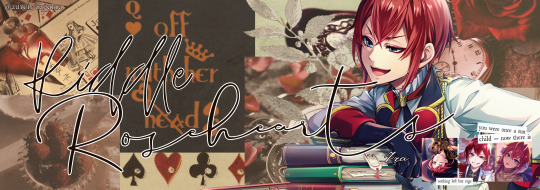
Riddle Rosehearts is a character who epitomizes authoritarian rule-following. His profile emphasizes that he has a “strong commitment to maintaining order,” enforcing even trivial rules and punishing any infraction. He is highly perfectionistic and devoted to his studies, becoming irritable when challenged.
In his backstory, Riddle was raised by a single, unnamed mother in the strict Queendom of Roses. From early childhood she taught him how to be a powerful magic user and “controlled every aspect of Riddle’s life” – dictating his clothing, diet, friendships, and study schedule. This upbringing made Riddle extremely obedient to authority (mirroring the Queen of Hearts’ edicts) and left him with few friends or free-time experiences. In short, Riddle is characterized by rigid self-discipline and a harsh maternal influence from a young age.
Maternal Relationship and Childhood Trauma:
Riddle’s relationship with his mother can best be described as authoritarian and emotionally harsh. As the Twisted Wonderland biography notes, his mother “controlled every aspect” of his life and insisted on constant study, even forbidding simple pleasures (like sweets). On one documented occasion, Riddle ate a strawberry tart while sneaking out to play with friends – only to be caught by his mother and “dragged back home.” She “harshly scolded and reprimanded” him for disobedience, crying and begging notwithstanding, and then further restricted his freedom (even banning his friends from visiting). These episodes illustrate a childhood of emotional abuse and neglect: Riddle had no privacy or autonomy, and any small deviation (like playing or tasting a treat) was met with severe punishment. Such chronic maternal control is a form of developmental trauma. Psychological research shows that childhood emotional abuse and neglect can have profound long-term effects. Trauma studies report that maltreatment – especially persistent emotional abuse – is associated with a “wide range of long-term adverse health and developmental outcomes”, including anxiety, depression and other psychopathology.
In Riddle’s case, growing up under fear of his mother likely produced chronic stress and anxiety. Furthermore, attachment theory suggests Riddle’s maternal bond was insecure. Bowlby’s theory and decades of research indicate that when caregivers are inconsistent or harsh, children often develop insecure attachment styles. For example, if a parent is physically present but emotionally hostile (as in Riddle’s case), the child may become anxiously attached: perpetually worried about abandonment yet fearful of displeasing the parent. Indeed, Cleveland Clinic reviews note that infants whose caregivers are “less attentive” tend to have difficulty forming healthy relationships later.
In Riddle’s behavior, we see echoes of an anxious/resistant attachment: he urgently seeks his mother’s approval, fears punishment (crying and begging for forgiveness), and later in life he rigidly seeks order (perhaps to preempt any disapproval). In sum, Riddle’s childhood under a domineering mother was psychologically traumatic and would foster an insecure, anxious attachment style
Fetish: Definition and Psychological Theory
In psychological scholarship, a fetish is not a general obsession but a specific type of sexual fixation. Encyclopedic sources define fetishism as a sexual interest focused on an inanimate object or a body part that is not normally considered sexual. In other words, a fetish involves requiring a non-genital object (such as clothing, shoes, or a particular material) or a non-sexual body feature (feet, hair, etc.) for sexual arousal. According to clinical nosology, fetishistic behaviors qualify as a paraphilic disorder only when they cause significant distress or impairment. Otherwise, a mild fetish (e.g. a shoe or foot fetish) may be a benign sexual preference.
Common fetish objects cited in research include shoes, lingerie, rubber or leather, and specific body parts (notably female undergarments or hair). Historically, sexologists Krafft-Ebing and Ellis noted in the 19th century that fetishistic interests often arise from learned associations in childhood.
Fetish vs. Kink: Definitions and Distinctions:
The DSM‑5 defines fetishistic disorder as recurrent, intense sexual arousal from nonliving objects or specific nongenital body parts, to the point of causing distress or impairment. In common usage, a fetish often implies that the person needs that object or scenario for arousal. By contrast, a kink is a broader, colloquial term for any non‑normative sexual interest or practice – especially within BDSM or role‑play contexts. Kinks include a wide range of activities (bondage, power exchange, role‑play, etc.) that go “beyond conventional sexual practices” and are not inherently disordered. Importantly, modern clinical views emphasize that neither kinks nor fetishes are pathological unless they cause the person significant distress or harm.
Fetish (sexual): a focused sexual fixation on an inanimate object or body part (e.g. shoes, feet) that may be necessary for arousal. DSM‑5 regards this as a disorder only if it persists for at least 6 months and causes serious psychosocial problems.
Kink (sexual): any consensual, unconventional sexual behavior or fantasy (often involving power dynamics or role‑play) that enhances pleasure but is not required. Kinks are not defined in diagnostic manuals and are generally considered normal variants.
Overlap/Distinction: A given behavior can be both a fetish and a kink depending on its role for the person. One clinician notes that fetishes are kinks that an individual finds indispensable, whereas kinks in general are optional interests one can “take or leave”. In short, fetishes tend to be more specific fixations while kinks describe a broad spectrum of atypical sexual interests. (Both are considered non‑pathological forms of sexual expression unless causing dysfunction).
Psychoanalytic Perspectives on Maternal Fetishes:
A “maternal fetish” – i.e. an erotic fixation on the mother – is not a standard category in modern psychology, but it can be discussed via psychodynamic theory. Freud’s classic Oedipus complex is directly relevant: it posits that during the phallic stage (about ages 3–6), a boy develops unconscious sexual desire for his mother and rivalry with his father. Normally this Oedipal phase is resolved by the boy identifying with his father and repressing incestuous impulses. However, if the Oedipus complex is not fully resolved, one could imagine a lasting maternal fixation. Britannica succinctly defines the Oedipus complex as the child’s “possessive sexual desires for their opposite-sex parent,” which are supposed to be overcome in healthy development. In psychoanalytic terms, an unresolved Oedipus might leave a man with an enduring, possibly unconscious, erotic attraction to the mother.
Freud also formulated theories of fetishism in general: he considered fetishes as defense mechanisms against castration anxiety, often involving overvaluation of a substitute object. In this framework, a fetish functions symbolically (e.g. the fetish object represents the lost phallus). Some analysts have suggested that a fetish might grow out of an intense early attachment; for instance, if a boy unconsciously equates a favorite maternal item (like her shoe or dress) with sexual pleasure, that object can become fetishized. More broadly, fetishistic interests usually originate in childhood or adolescence when sexual feelings first emerge. A “maternal fetish” specifically could be viewed as an extreme case: the mother (a human figure) becomes the focus of erotic fantasy. Psychoanalytic literature warns that such incestuous fixations are outside healthy development; some older theories even regarded fetishism as a way to disavow uncomfortable aspects of the maternal image. While mainstream psychology lacks empirical studies on “mother fetishes” per se, theorists would typically interpret them through the lens of unresolved Oedipal conflict and early conditioning.
The “Mommy Kink”:
A “mommy kink” generally describes a sexual role‑play in which one partner assumes a dominant, maternal persona (“mommy”) and the other takes on a younger, more submissive or childlike role. Psychologically, this can be seen as a form of eroticized caregiver/child dynamics. People report various appeals: nurturing comfort, authority, or even gentle humiliation under a maternal figure. For example, some participants say that playing the “mommy” role provides a “sense of safety” and allows the submissive partner to feel “small and cared for” while also experiencing the dominant’s authority. Others describe craving the “nurturing nature” of a mother figure they felt was lacking in childhood. In academic terms, mommy kink is related to age‑play or parental roleplay within BDSM, and is not inherently pathological when practiced consensually by adults. Psychological theories that might be invoked include:
Psychoanalytic (Oedipal) Roots: Freudian theory posits an unconscious desire in early childhood for the opposite‑sex parent (the Oedipus/Electra complex). If an individual’s psychosexual development were fixated at that stage, they might later eroticize maternal images. While modern psychology does not treat Freudian complexes as literal determinants, the idea suggests that early maternal bonds can influence adult eroticism.
Attachment Theory: John Bowlby’s attachment framework emphasizes that early mother‑child bonding shapes later relationships. Individuals with insecure attachments (anxious or avoidant) to caregivers often carry those dynamics into adulthood. For example, someone anxiously attached to a cold or neglectful mother might subconsciously seek out maternal figures to fulfill unmet emotional needs. In lay terms, “mommy issues” can involve an adult seeking partners like their mother. Thus, an adult might fetishize a caregiver role if they yearn for a maternal sense of safety.
Dominance/Submissive Dynamics: In BDSM psychology, the “mommy” figure is usually a form of Dominant or caregiver, while the “little” is Submissive. The appeal can be partly power exchange: the submissive feels guided and disciplined by a maternal dominatrix, which some find erotic. Participants report that dual feelings of comfort and intimidation under a maternal dom (as noted by a professional dominatrix) can be especially potent.
Coping and Role‑play: Some theorize that such kinks may serve as a coping mechanism or fantasy to replay childhood dynamics in a controlled, consensual way. If someone lacked nurturing or experienced trauma, the role‑play might symbolically provide care. However, systematic studies show that kink practitioners do not generally have higher rates of childhood abuse than others, suggesting that mommy kinks are not simply “trauma responses” but rather complex fantasies or preferences.
In summary, a “mommy kink” is best understood as a form of consensual role‑play or fetish involving maternal imagery. Its psychological underpinnings draw on attachment needs (seeking care), developmental imprinting (unconscious attraction to parental figures), and BDSM power dynamics. Notably, participants emphasize emotional themes (care, praise, discipline) rather than literal sexual abuse of minors. Therapists today view such kinks as within the spectrum of normal adult sexuality when consensual
Likelihood of a Maternal Fetish in Riddle Rosehearts:
Assessing Riddle’s profile against these theories, a maternal fetish seems unlikely. On one hand, his intense upbringing did center on the mother, and Freud might note the absence of a father could leave maternal attachments unchallenged. However, all available evidence points away from any eroticizing of the maternal figure. Riddle’s experience of his mother was predominantly negative (she punished him for play or treats), instilling fear and guilt rather than comfort or sexual attraction. For example, after Riddle was caught with the strawberry tart, he “begged and cried to his mom to forgive him” – a response of submission and anxiety, not of romantic longing. His emotional bond is anxious/dependent rather than affectionate or erotic. Moreover, Riddle’s own behavior shows no signs of unusual sexual interest in his mother. He has internalized his mother’s moral code so strongly that he “considers his values to be morally right no matter what”. In other words, his psyche is dominated by duty and fear of wrongdoing, consistent with a highly punitive superego (internalized maternal voice). Paradoxically, such a rigid conscience is more likely to suppress taboo fantasies than to foster them. Empirical trauma research supports this: children raised by punitive caregivers typically develop anxiety and hypervigilance, not fetishistic arousal. Studies show that early emotional abuse leads to anxiety, depression, and relationship difficulties – outcomes congruent with Riddle’s anxious demeanor, but not with any erotic preoccupation. In fact, Riddle channels his fixation on rules and study rather than sexuality. In summary, although psychoanalytic theory allows for the possibility of lingering Oedipal feelings, the content of Riddle’s childhood suggests a maternal fetish is not realistic. He lacks the nurturing, affectionate context that might give rise to erotic fantasy; instead, his memories of his mother involve domination and punishment. His attachment appears anxious and fearful, which typically produces compliance or rebellion, not erotic fixation on the caregiver. Thus, based on his personality and history, Riddle is far more likely to carry an exaggerated superego and social anxiety than to develop a maternal fetish. In evidence-based psychological terms, the hallmark features of fetish development (positive early associations with the object of desire, sexual conditioning) are absent in Riddle’s case, so a maternal fetish would be a highly improbable outcome.
Assessing the “Mommy Kink”:
Given this background, several points argue against Riddle having a mommy kink as well:
Lack of Maternal Nurturing: Riddle’s mother was a disciplinarian, not a caregiver who offered affectionate comfort. The typical “mommy kink” fantasy emphasizes feelings of being comforted or praised by a mother figure. Riddle’s lived experience was the opposite – he begged to be treated kindly and was rebuffed (his tears and pleas in childhood went unheard). Psychologically, one would expect that a fetish or kink develops around what was missing (e.g. idealized care) rather than what was unpleasant. There is no indication Riddle idealizes maternal kindness; instead, he mimics maternal strictness.
Role Identification: Rather than remaining in a submissive “child” role, Riddle grew up aspiring to be an enforcer of rules. He essentially became a smaller version of his mother – a young authority figure himself. From a psychoanalytic perspective, Riddle may have resolved any Oedipal tension by identifying with the parental role (similar to how he became a “little Queen” in effect). This suggests his erotic or relational scripts would favor dominance and rule‑making over submission to a maternal authority.
Attachment and Autonomy: An adolescent who has internalized a fear of his mother’s disapproval might develop an avoidant or anxious attachment style. Riddle exhibits anxious‑compliant behavior (studying obsessively to please her), which later translates into a rigid work ethic. Such individuals often crave acceptance but may express it through achievement rather than dependency. In adult relationships, Riddle might seek admiration and deference (his way of earning “approval”) rather than comfort. In other words, he is less likely to seek maternal care and more likely to demonstrate maturity and control.
Alternative Interpretation: Psychological Indicators Supporting a “Mommy Kink” in Riddle Rosehearts:
While Riddle Rosehearts canonically exhibits traits of rigidity, control, and internalized authoritarianism, there are also plausible psychological arguments that could support a headcanon of him developing a “mommy kink” in adulthood. This interpretation draws on psychodynamic, attachment, and trauma-related frameworks to assess how early childhood experiences may influence erotic preferences later in life.
Unresolved Childhood Yearning for Affection: Although Riddle’s mother was cold and punitive, he demonstrably longed for warmth and acceptance. His emotional reaction to small pleasures—such as secretly eating a tart or crying when scolded—suggests deep emotional deprivation during critical developmental years. In psychodynamic theory, unmet needs can be eroticized later in life as the mind seeks symbolic compensation. A maternal role-play could offer a controlled environment where Riddle re-experiences the maternal presence—not in its traumatic form, but reimagined as warm, validating, and affectionate. This aligns with concepts from object relations theory, which propose that individuals internalize both idealized and punitive images of their caregivers. A “mommy kink” might thus emerge from a fusion of unmet longing and power dynamics—a way to reclaim control over a past that once left him helpless.
Kink as a Mechanism of Psychological Reversal: In trauma psychology, erotic reversal is a concept wherein individuals transform distressing experiences into controlled, pleasurable ones. Clinical literature in BDSM studies suggests that role-play involving dominant parental figures may serve as a reparative fantasy. For Riddle, consensual maternal-dominant role-play might allow him to process and symbolically “re-write” his childhood narrative: he is now choosing the maternal figure, receiving structured affection, and experiencing rule-enforcement in a safe, affirming way. This theory also draws on mastery repetition—the idea that people sometimes repeat early traumas in new contexts in order to master them emotionally. A maternal kink might thus offer Riddle an outlet to safely engage with the themes of discipline, love, and approval that once hurt him.
Submissive Traits Under Control-Oriented Mask: Despite his authoritarian behavior, Riddle frequently displays signs of underlying vulnerability and fear of rejection—hallmarks of an anxious-preoccupied attachment style. His need to follow rules, gain recognition, and suppress emotion may be defense mechanisms against feelings of inadequacy instilled by his mother. In adulthood, such individuals may be drawn to caregiver-dominant dynamics in which they can temporarily surrender the burden of control. A “mommy kink,” in this case, would allow Riddle to engage with a nurturing-yet-structured authority figure who guides and praises him—precisely what he was denied as a child. Research on kink communities confirms that submissive individuals often seek emotional containment through structured power exchange, especially when they come from high-control or emotionally deprived backgrounds.
Regressive Coping and the Desire to Be Cared For: Another explanation comes from the idea of regression under stress. Highly rigid, perfectionistic individuals—like Riddle—often experience psychological exhaustion or breakdowns when they can no longer meet their self-imposed standards. In adulthood, this can manifest as an intense desire to temporarily surrender control, sometimes through erotic or emotional regression. The “mommy kink” can fulfill this need by allowing a controlled, adult-safe form of being cared for, disciplined, and forgiven.
Conclusion:
Based on his canonical profile, Riddle Rosehearts does not fit the pattern of someone with a “mommy kink.” His strict upbringing under an authoritarian mother seems to have instilled in him a desire for control and perfection, not a craving to be cared for or disciplined by a maternal figure. His psychological development emphasizes rule‑following and self‑discipline rather than maternal submission or infantilism. In summary, Riddle’s personality and history suggest he would be highly unlikely to manifest a mommy‑role sexual fetish; instead, he embodies the authority he once feared.
However, while canon Riddle Rosehearts internalizes his mother’s strictness and presents as a rigid authority figure, a psychological reading allows room for a nuanced alternative. Based on established psychological theory—including attachment dynamics, trauma repetition, and kink psychology—it is plausible that Riddle might develop a maternal-dominant kink in adulthood as a way to fulfill unmet emotional needs, explore repressed desires, and process early emotional deprivation.
Simply put, I don’t personally think Riddle fits the criteria—but that doesn’t mean the headcanon comes out of nowhere. It can be justified; I just find it a bit unlikely in his case.
#twst#twisted wonderland#twst x reader#twisted wonderland x reader#twst smut#twisted wonderland smut#riddle#riddle rosehearts#riddle x reader#riddle rosehearts x reader#riddle smut#riddle rosehearts smut#character analysis#riddle character analysis#riddle rosehearts character analysis#psychology#riddle psychology#riddle rosehearts psychology
115 notes
·
View notes
Text
Freud being one of the famous person whom Kaiser wanted to meet is an interesting yet entertaining piece of information.
Imagine Freud learning what his ideal woman is and he'd just look at Kaiser and says, "Damn. That Oedipus Complex is strong in you."
#if kaiser didn't grew up in poverty he'd probably pursue a major degree in psychology minor in philosophy#you cannot tell me that kaiser isn't a cerebral and conceptual person by his details in his profile in the egoist bible#blue lock#bllk#blue lock egoist bible#michael kaiser#sigmund freud#psychology
54 notes
·
View notes
Text
Why am I into feederism and have such a strong preference for bigger/fatter women? Is it just because they have more to hold, embrace, fuck and cuddle? That definitely plays a part, but I don't think that's the whole story.
Could it stem from something like an oedipus complex? Was my mother fat? Nope. She was actually on the thinner side and harbored a bit of a disdain for fat people, specially fat women. This was evident to me from the way she constantly urged my sister not to gain weight and made unkind remarks whenever she did. I've always had some level of disdain or dislike for my mother for a couple of reasons, so could my attraction to fatter women be a form of rebellion against her and her "ideals"? Maybe, but if it is, I'd say its only a minor factor at most.
Honestly, I would say that the core of it lies in my desire for a single, super deep, and meaningful connection. A connection so intense that my partner would feel safe enough to let her "gluttonous" side emerge, letting go of societal worries because my opinion would be the only one that mattered to her. Or a connection so profound that she would be more than willing to compromise her health and body image, gaining weight as a clear and constant symbol of her love and devotion to me. There's also the added dimension of physical dependence, her becoming more reliant on me would naturally lead to us spending more time together and deepening our emotional and physical codependency. In this sense, my attraction to feederism seems to stem from my more obsessive and possessive tendencies
20 notes
·
View notes
Text
"I also really wonder just how much of his mother Blitz sees in Stolas." - An answer.
I remember asking myself this shortly after ghostfuckers released, and thanks to a reblog I did a few days ago where I touched on topics kind of related to this, I think I have an answer. More specifically, I touched on this topic in that reblog:
According to an article posted on the Michigan State University website (and more sources agree with this claim as well), research shows that people tend to choose partners similar to their exes or parents, which in Blitz's case, which obviously be his mother, Tilla.
What relevant similarities between Stolas and Tilla have we gathered already?
'Stolas has Tilla's smile.'

'Stolas in s1 e6, and Tilla in s2 e10.'




I'm pretty confident that Stolas in s1 e6 and Tilla in s2 e10 (as I have just shown you), is intended to be a parallel of sorts between the two people, the two scenes.
So, assuming that these similarities between the two are an intentional decision from the helluva boss team, what could this possibly tell us?
"People tend to show romantic interest in people who resemble their exes or their parents. Called transference, this concept holds up across the lifespan - meaning that younger, middle-aged and older people all tend to follow this pattern."
I believe that it shows that both Stolas and Tilla share some similar qualities, such as being gentle and caring, to give a few examples. Keeping the quote from the article in mind as well, I suspect that in Blitz's mind, even if subconsciously, Blitz sees those parts of Tilla in Stolas, like Stolas is emulating parts of Tilla in a way.
Some other lines in the article I'd like to mention are these:
"For this study, the researchers asked over 500 participants to use adjectives to describe their past partners, such as "nice," "helpful," or "charismatic," and then designed dating profiles to mimic those traits. Leahy and Dr. Chopik found that, not only did the majority of participants favor profiles with similar traits as their exes."
"The study also found that people were more interested in dating people who reminded them of their parents as well as their exes."
Now, while the first quote of the two does talk specifically about past partners, I believe the second quote shows that what the first quote is saying is also true if we were to replace 'past partners' with 'parents'.
As I have recently stated, I believe that it is likely that Stolas shares some positive qualities/traits with Tilla, and that Blitz may have noticed this, even if it's subconsciously.
And well, in s2 e9 and s2 e10, it's been made pretty clear that Blitz has strong feelings for Stolas.
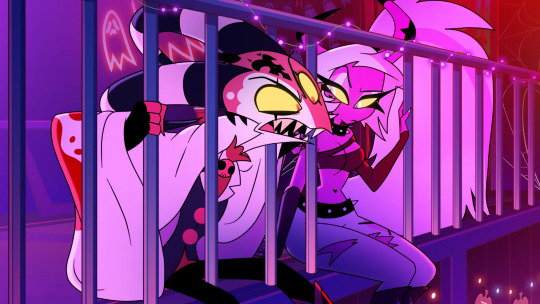
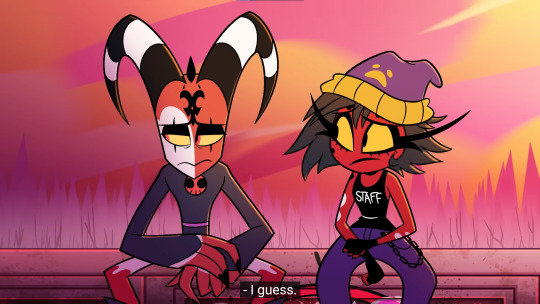
So, in conclusion, I suspect that part of the reason why Blitz fell for Stolas, and has all these feelings for Stolas, is because Stolas appears to share some positive qualities with Tilla, and as research shows, people tend to pick partners similar to their parents, again, for Blitz, that parent being Tilla.
Also, the article states that the results of the research has nothing to do with the oedipus complex, before anyone tries to say that I'm implying that Blitz has that.
"Although the finding may seem Freudian at first, Dr. Chopik explains that it has more to do with emulating a past positive relationship in one's life."
#helluva boss#blitzø#blitzo#stolas#stolitz#helluva boss stolas#tilla buckzo#verosika mayday#helluva boss millie#I am going to die on this hill
23 notes
·
View notes
Text
Dungeon Meshi Anime Review, Season 2, Episode 19 review
Izutsumi arrives! And Marcille has a nightmare.
This is an interesting episode but I know my spouse and I had desperately hoped that they would re-organize things somehow. Marcille's plot in this feels painfully tacked on and unrelated to Izutsumi's introduction, and the concept of the nightmare is so good, it could have easily been expanded to be an entire episode on its own. I wish they'd done that. They could have paired Izu's intro with the ice golem story to have one all-Izutsumi episode and then one all-Marcille episode... alas.
Those are changes I would have LIKED to see, but here's some changes I didn't like:
(MAJOR MANGA AND ANIME SPOILERS BELOW THE CUT!!!)
Trigger removed Laios' mother's only speaking line in the manga. It would have taken SO LITTLE to have someone read this single sentence, and removing it, in my opinion, has a negative impact on the story as a whole.
It SOUNDS like a generic thing when she asks Laios "When will you give us grandchildren?" But this is actually really important. Laios is afraid of being forced to make a family and participate in society. This is unusual because he's a man, most men in a historic time period of this don't really care about such things, but Laios is so afraid of it, it's a recurring nightmare!
This is also why he acted so weird seeing a loving father/baby scene in the magic paintings chapter. He hated seeing a father talk about how much they love their baby.
Laios is named after a story about murdering your children before they can hurt you. Like an Oedipus Complex supposedly means that a son wants to have sex with his mother, a Laios Complex means a man wants to kill his sons. Kui did not pick this name and then have Laios repeatedly be uncomfortable with children, marriage and fatherhood for no reason.
Obviously Trigger didn't make any of these connections and so they didn't think it was necessary for Laios' mom to speak this line out loud, but I vehemently disagree.
This is similar to my beef with them removing Yarn Floke's only dialog in the story and removing her from the scene with the Island Governor. That moment told us that Mr. and Mrs. Floke were equal partners, and now anime watchers assume she's just his wife who doesn't do anything. That sucks.
The addition of paintings of Marcille's father in the nightmare. Woof. I really don't care for this, if they wanted to do it i would have preferred it if they'd obscured the paintings somehow so it wasn't obvious that Marcille's father wasn't an elf.
I think this makes the later reveal of her half-elf status WAY less surprising.
Also, in the manga, the complete silence around her father created a strong subtext that Marcille's mother was her only parent that mattered. They could still accomplish this but I think it won't be as shocking.
People reading the manga probably thought "her dad was an elf and he died young and that traumatized her" (this is what Laios assumes I'm sure)
People watching the anime will think "her dad was a tall-man and his natural death of old age is what traumatized her" which is true, but they aren't supposed to actually know that yet...
Overall the episode was good aside from these issues. I liked that the nightmare sequence was in black and white, and the transition to color at the end was spectacular and very impactful... But part of me wishes they had done something else to differentiate the nightmare state from the normal animation. The black and white was good, but almost too subtle because the DM palette is already so desaturated.
36 notes
·
View notes
Text
A long analysis about the Yugi twins
How should I start? Maybe in a more objective way, or perhaps with a "once upon a time"
No? haha I imagined.
How could I start with "once upon a time" when there is no fairy tale in this story? Maybe it's more like the Grimm brothers' tales.
The story of two twin brothers that culminated in a mysterious family tragedy, how should we tell this story?
How about we start with brotherly love?
Oh yes, that's a good start.
The melancholic, brotherly love of the Yugi twins. Ah… the love of identical twins, more intense than the love of ordinary brothers, there is a connection, a bond, being born together and sharing the best and worst moments of life, discovering the world little by little, each in their own way . .
Their love transcends and surpasses death.
A beautiful story, isn't it?
But why do most beautiful stories tend to be so sad? A 4-year-old child who gives up his own life because his older twin brother will no longer be by his side in the future.
A younger brother who feels rejected, unloved and who strives to his own limits to win the love of his older brother, come on, see him fill his room with toys, books about stars, what else Amane likes ?
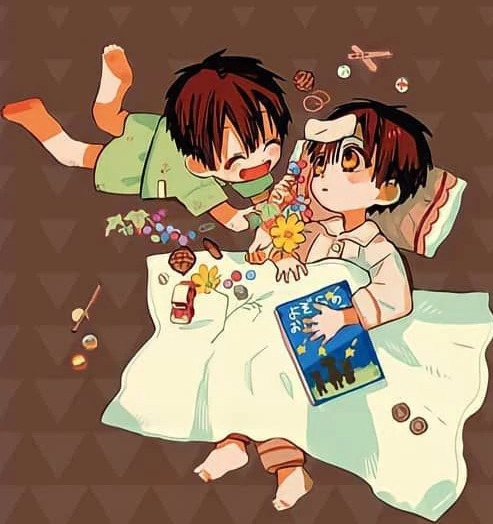
He wanted to do something for him, to give Amane a kind of genuine happiness, even with such simple and small gestures. For a four-year-old boy, giving someone his favorite things would make him happy, wouldn't it?
He gave everything to Amane, including the health he wanted so much.
And in exchange for that, he gained solitude.
The first shock was born here, the disappearance, the despair, the sadness, the melancholy. How many times can you imagine little Amane leaning against the window looking up at the sky, hoping and wishing that his brother would miraculously appear to him?
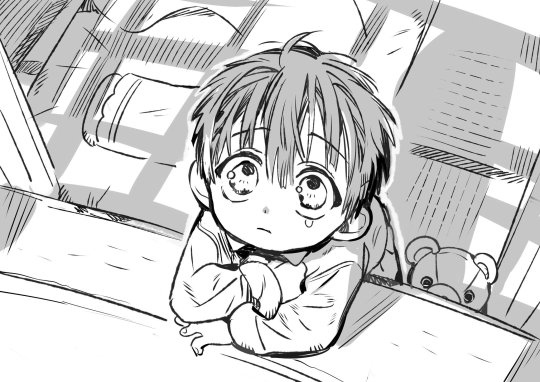
Amane's desire that brought his own pain.
How did he react to Tsukasa's return? Did he cry with happiness? Did he pretend he was strong enough to not let the tears fall in front of him?
Are you listening? Yes, the sound of silence, we still don't have an answer.
There is the first great brotherly love here, a younger brother who fears the death of the older one, who did everything to make his days happier, who found a way to save his brother… And the firstborn, the one who just wanted to be healthy like his twin, he suffered the sudden and inexplicable absence of the youngest.
What were the consequences of this? Insecurity? Lack? possessiveness? Want to be in control? Did Tsukasa's disappearance change Amane?
What has changed at Amane?
What kind of love did he feel after Tsukasa's return? What happened in the interim between childhood and pre-adolescence that culminated in such a tragic end?
All we have are symbols, metaphors, flashbacks. The flowers that surround them in moments of tension or reunion, the camellias, which represent love itself.
We could list its colors, but only one interests us, red. The color that reflects on Hanako's clothes, which represents him as a whole. The red camellia, the one that represents love, passion…. Passion?
They appear between Hanako and Tsukasa, in the same intensity as they appear between Hanako and Nene.


What do they have in common?
Love… but what kind of love?
The human being is a handmade work, as complex as all the stars that mysteriously float in a dark immensity. How many ways could a human being love?
The flowers represent passionate love, romantic love, the love that Amane feels for Nene, but then, why do they appear to Tsukasa? Why is Tsukasa sometimes represented by Sakura flowers, those that show femininity and fragility?
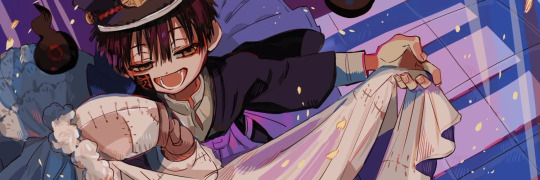
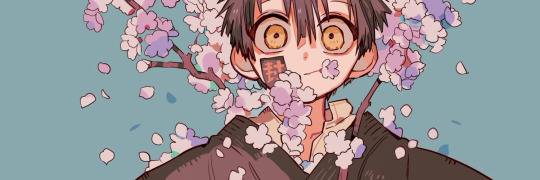

How would Tsukasa fit in here? Freud could help us with this, he, with all his wisdom and experience, showed us a new concept of unacceptable love, the tragedy of Oedipus, the boy who, as a child, had loving and hostile desires towards his mother.
The boy who would kill his father and marry his own mother. Oh, another tragic story involving forbidden love, sound familiar?
What kind of love did Amane sow and allow to grow? What was Tsukasa to him? And what does Amane represent to Tsukasa?
"Oedipus complex: The Oedipus Complex is a phenomenon described by psychoanalyst Freud to designate a time in child development in which the child develops loving feelings for the parent or family member."
I could spend hours explaining the concept, but I believe you already understand perfectly where I'm going. We are on the fine line between brotherly love and romantic love, what separates them in the case of twins?
That's the right question.
At what point was Amane's love sown? There are no answers, just clues. The suggestive touches, the strangely romantic and sometimes ambiguous displays of affection, the light touch on the older brother's lips
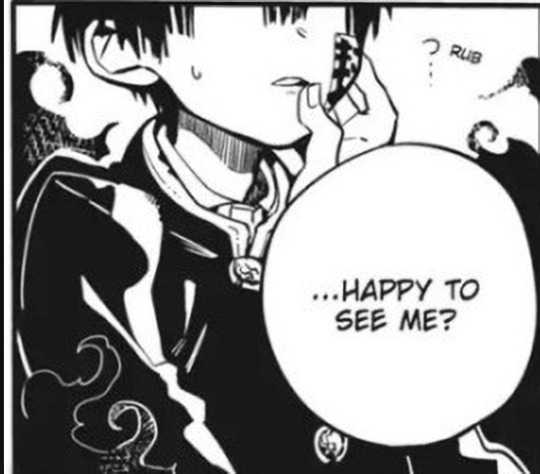
A warm hug enveloping him between his legs.

An almost reunion kiss
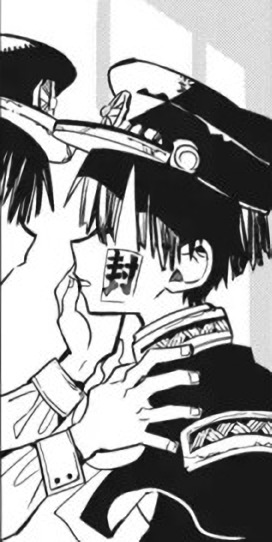
The older brother on top of the younger one, while he places one of his hands on Amane's arm and gently touches his lips with the other, as if waiting for him to come closer.
Amane's squinty eyes looking shyly at the camera "there's someone watching us"
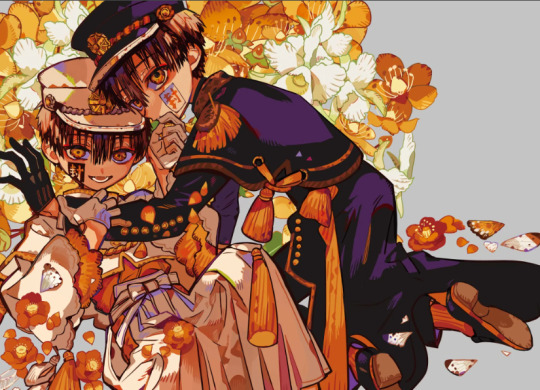
What would you understand if I used a random couple's name during these times? Isn't this an intimate and intense moment between a couple?
We could perfectly confuse the type of love that exists between them… romantic love, brotherly love… love… obsessive…
Ah… one of the evils of the world, obsessive love, a complete and dangerously alarming package. It is a love that transforms people, making them obsessed, controlling, selfish, inconsequential, disrespectful, jealous, and invasive (with unfounded distrust and suspicion).
I'll ask once again, does it remind you of anyone?
Can you see in those golden eyes a love that shines through your whole healthy way of being? No? This does not exist in the universe that hovers in Amane's head and heart.
What is his is HIS. There is no second option, there is no other alternative, it is his, it is for him, it is all related only to him. Nene is his, Tsukasa too. And if both of them are about to get out of his control, he traps them, like birds that have just lost their wings.
It's a selfish love… It's a jealousy so painful that he cries to the point of almost getting sick. The terror of loss, he hates losing. How did Hanako shock people by crying inconsolably after her little brother kissed the girl he likes?
Would he cry the same way if it was someone else who had kissed Nene? Would he have cried like that if Akane had kissed Nene on the day of the elevator?
Hmm….it's not just about her….
Why did Hanako start showing more love for Tsukasa when he kissed her? Hanako found the two of them falling to the bottom of the abyss of number one's boundary, and he went to Tsukasa.
He wasn't looking at Nene, he wasn't talking to her, he was talking to Tsukasa. He looked him in the eyes without trembling, without hesitating, without yelling
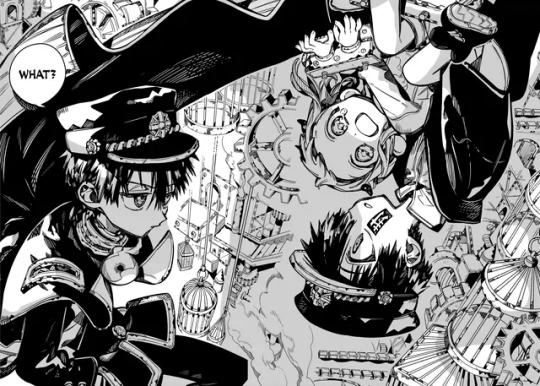
He placed him between his arms and later wrapped them between his neck. He saved them both equally.
And even though he showed irritation, he denied being angry, was he just jealous of Nene? If he was jealous, if he was suspicious, why would he throw Nene to Tsukasa? Why would he scream his name with so much concern?
Why was he so embarrassed when Tsukasa found out that he wants to do perverted things? Embarrassed to the point of turning red all over, including his hands, embarrassed to the point of almost crying, can we see a tear falling here?

Yes, he was more embarrassed here than when Nene kissed him on the cheek….
The chaotic energy that emanates from these two, uncontrollable, one is calm and the other is storm, the Yin and Yang, the sun and the moon. Come, allow me to show you Tsukasa once again being represented in a feminine way, when he becomes the moon of Amane.

Yes, the moon, the one that represents yin, femininity, the opposite of the sun, the masculine, virility, masculinity. Ah, the moon, the one that Amane loves, the one that Amane dreams of finding every day, touching it, making it his own.
Why would Tsukasa be her representation?
Many say that it's because Tsukasa is Amane's treasure, the one who made him give up on his own dreams, the moon is Amane's unattainable hope of freeing himself from the ropes, the ties that don't allow him to float so far.
The moon is the light in the middle of the darkness that he seeks so much.
Who is Amane looking for so much?
Tsukasa?
It's convenient that he's the moon, she represents the unattainable, the love of an older brother that can't be completely true because he knows it's an equally… unattainable love…
The love locked away in the chest, the love that made Tsukasa become a prisoner. Amane loves him, but he can't express it, he can't admit it, he can't be honest, but he doesn't want to let him go, he doesn't want to let him go again, Tsukasa's love is his.
He trapped Tsukasa himself in a cage that has no doors… But can Tsukasa create a passage?
On the other hand, we see the youngest, the boy who shows his emotions without regret, without being ashamed, he just loves, Tsukasa is a simple boy.
But he loves it too much. Permissive and loyal love, let Amane decide, let Amane tell me. I sacrificed myself for him, but it wasn't enough, I want to understand him.
Why? Do you want to fix things? Want to do better?
The silence echoing everywhere denounces this boy's motivations, the permissive love, so altruistic to the point that he still misses the brother who would kill him in the future, perhaps Tsukasa could even justify Amane's reasons for killing him.
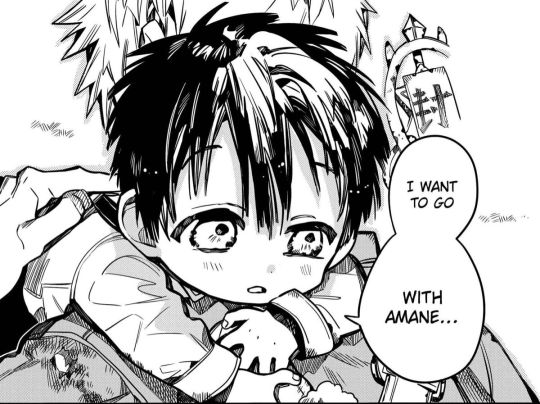
It's a strong love, but it's not unconditional.
Amane tied Tsukasa to him, the boy didn't have the opportunity to truly die. He has lived in eternal purgatory since he was four years old, and from the beginning it was always for him, it was always for Amane…
Tsukasa befriended death, and made it a great friend.
He never had a "rest in peace" it was always a "see you soon". He didn't go anywhere, he remained in purgatory alone for years on end
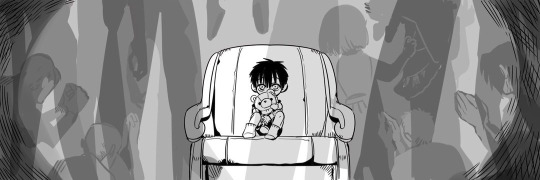
And when he returned to live next to his much-loved older brother, he deluded himself into believing he had achieved freedom, when in fact he was thrown straight into limbo. .
He was lonelier than before.
Limbo only had memories, darkness and silence��� The walls revealed his presence, the hands marked with a certain constancy, with a certain insistence, were marks that Tsukasa left before finding a way out.

The only thing that could be heard was Tsukasa's voice echoing between the walls
"Amane" - he called on Hanako's boundary.
The walls were discreet, Amane didn't hear him
No one listened to Tsukasa.
It will be?
"I'm not going anywhere" - said Amane, forgetting to complete his own sentence - "Neither is Tsukasa."
Tsukasa's loneliness screams intensely but no one hears, no one sees… No one listens to Tsukasa
But no one listens to Amane either… equally lonely, sitting on top of an old toilet while waiting to be called by someone, while waiting to be heard again.
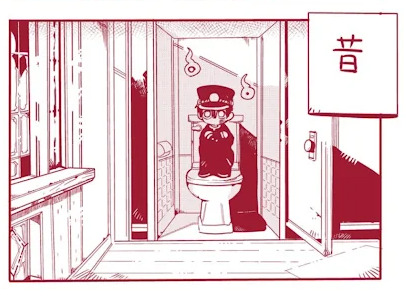
He can break free, Tsukasa can't.
Ah, obsessive love…. it has those things. Amane feels remorse for everything, but his mouth stops, it shakes to the point where he can't speak, he may lose his tongue but he won't ask for forgiveness.
It will be? Ah, my mistake, he will, at the right time.
Love is slowly awakening… Amane had locked him away together with Tsukasa, but now that he is free, love is blooming again…
Hanako had abandoned a love that he couldn't deal with, but that was embedded in his chest, there is nothing he could do that could get that love out of there, it was just dormant…
He was?
Or has Amane been suffocating him all these years?
A tiring love… for both of them… so the Yugi twins' great dilemma was born, to stay or not to stay?
Tsukasa didn't leave because he was selfish, he went to give Amane everything he wanted, he exchanged his own life for his. We can imagine little Amane's pain when he no longer finds his little brother anywhere, even searching among his favorite toys, even calling him over and over again.
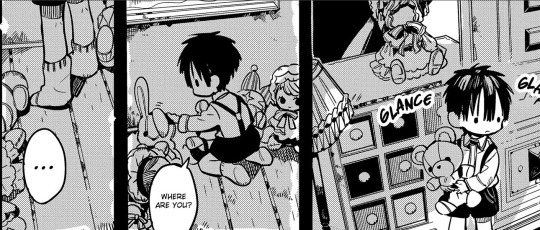
Tsukasa didn't respond.
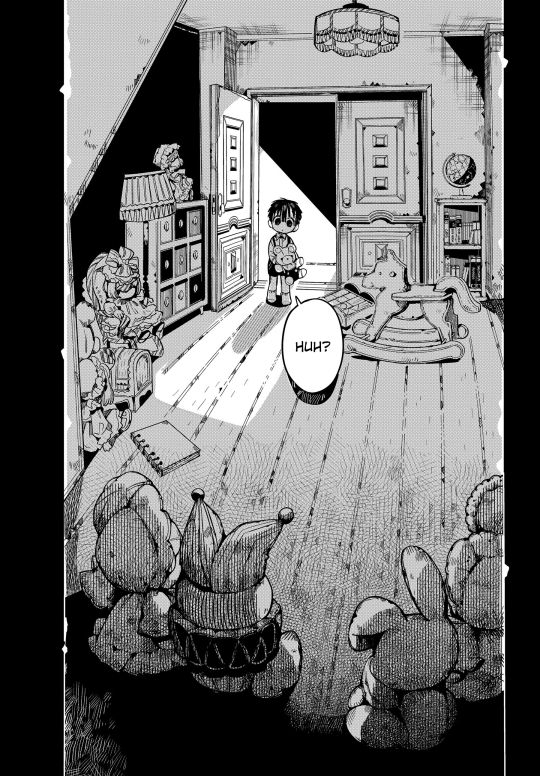
When he returned home, something awakened in Amane, the intense and dark fear of losing, how could he deal with it? His naivety was broken at the age of four when he suddenly lost the one he loved… but, that person came back…
He won't let him go anymore.
Tsukasa wants to go, he wants to give Amane wings to make his dreams come true, but Amane chose to cut them off, he doesn't want to fly anymore, he wants to stay next to the person he loves.
The dilemma that culminated in a tragedy
We could paraphrase Shakespeare, when the famous tragedy born of his genius thoughts told us "to be or not to be, that is the question" to suit the Yugi twins, we would say
"To stay or not to stay, that is the question"
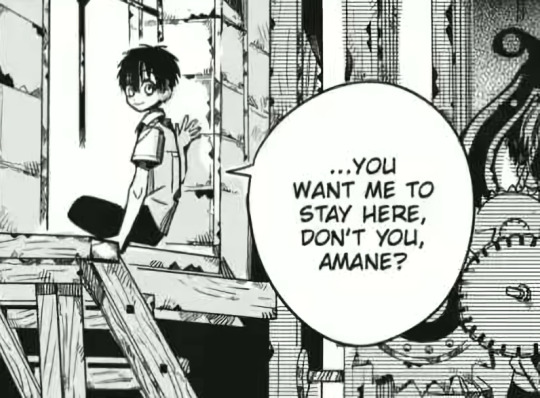
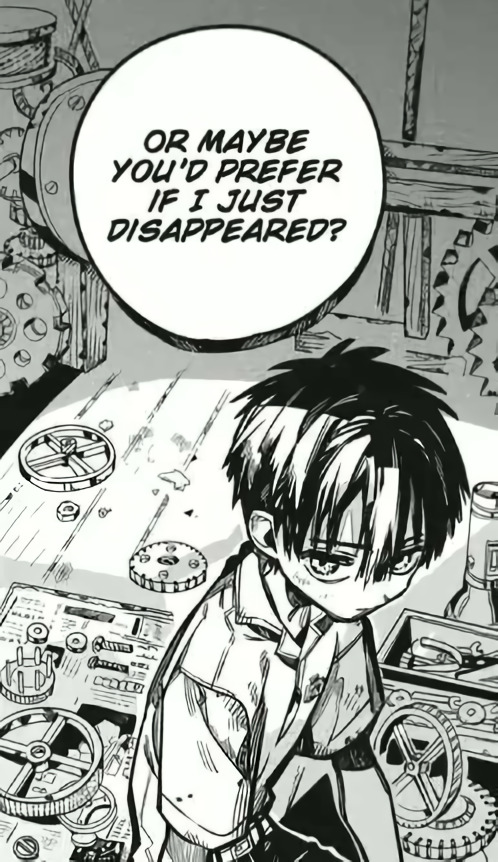
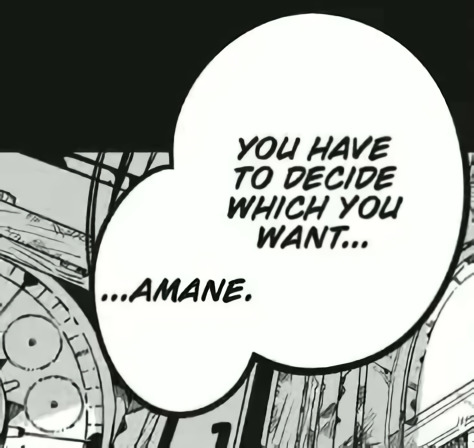
Tsukasa was often stabbed by Amane's silence, the intense attempts to make Amane talk about how he felt, made Tsukasa tired, he wanted to hear, he wanted to see…
It was a tiring love….
What did Tsukasa become when he allowed his chest to fill with the purest supernatural darkness? What did he become when he went there? And who was he when he returned?
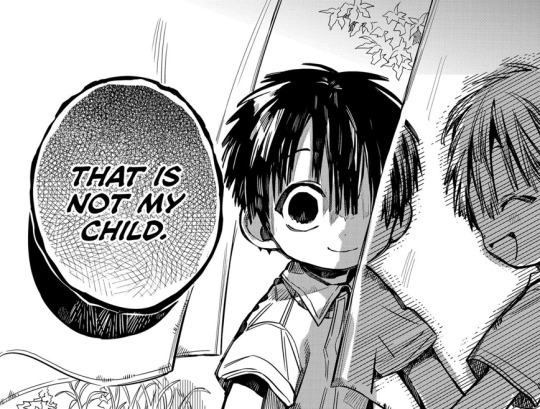
Was Amane's love able to overcome the inevitable loss of his four-year-old brother? Tsukasa who returned was not the same, the old Tsukasa died. What kind of relationship did they have when Tsukasa became an otherworldly being?
He who carries death with him.
When Amane allowed Hanako to be born, was he still Amane?
Yeah, he's back, can you hear it? The silence of a non-existent answer.
Supernaturals are not human, and do not relate as such.
To repeat, supernaturals are not human.
How do they love?
It is a mysteriously hostile and unpredictable love, the love that reflects the intensity of the deepest desire, to devour, to desire…
The twins love like humans, but have similar desires as supernaturals. Devour or be devoured. Ah, the explicitly sexual connation in the context, having someone in possession of you, desiring it with all the intensity that you carry in your chest, making it his, uniquely yours.
The misunderstood and illusory love of Hakubo and Sumire, the girl who is geniusly in love, who created castles in her own mind to suppress the pain of living in reality. Being loved by at least someone is a comfort that eases the pain of loneliness.
The years that escaped time separated them, but the resolution came, even after a long wait, Hakubo returned. He took her as his wife, he asked to take her… and she allowed him. The consummation, the blood on the floor showing the painfully unforgiving love they had to submit to.

An Oni who pretends not to see, and a Kannagi who asks for help without speaking. A disagreement that ended in consummation.
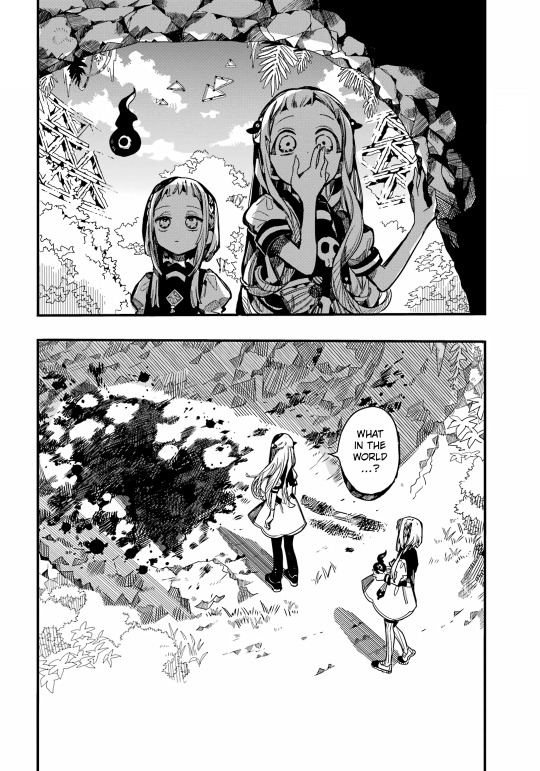
How do they compare to twins? Love misunderstood and unresolved… a love that will end in consummation…
It will be?
We see it again, yes, the fine line between sibling love and romantic love.
Taking Tsukasa as his, devouring him, consuming him, as a last gesture of true love.
But would Hanako devour him?
Does Amane love Tsukasa the same way he loves Nene? Does Tsukasa love Amane the same way Nene loves him?
Is it as heavy and difficult to love Amane as it appears to be?
This is the lock, full of clear and objective questions, but the same question screams with all its force at all times:
What kind of love is that?
We still haven't found the key that will unlock the truth, the answer to that question…
We remain trapped in a bird cage, waiting for Amane to arrive with his golden key, only he can bring the truth, the big problem is
When will he come?
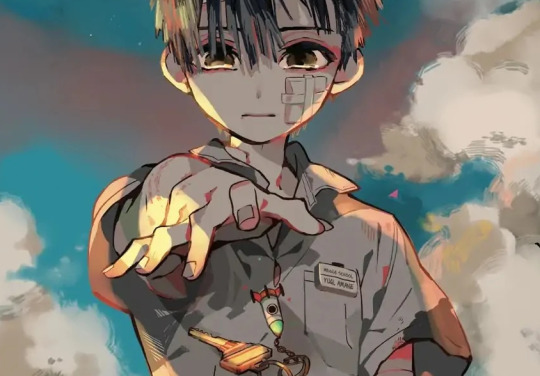
Important observations:
The post is an analysis, it has nothing related to my personal preferences, I don't ship the twins and my intention is not to encourage behavior similar to theirs, again, it's just an analysis based on their behavior. Don't take what I say here too seriously, these findings could be completely wrong, so it's just an analysis.
I carried out this larger analysis due to the number of requests to create new posts or complement existing ones about the twins.
There is more content about them on my blog, if you are curious, just go to the pinned comment and look at the index, there are the main posts.
#jibaku shounen hanako kun#toilet bound hanako kun#jshk#amane yugi#hanako kun#aidairo#tbhk#yugi twins#hanakokun#jshk spoilers#yugi tsukasa#tsukasa yugi#jshk amane#jshk tsukasa#jshk hanako#jshk theories#jshk analysis#tbhk nene#tbhk spoilers#nene yashiro#jshk yashiro#yashiro#yashiro nene#tbhk amane#yugi amane
72 notes
·
View notes
Note
Say your response about snape reacting to hinny, honestly it IS one of my guilty pleasures in fics. I hate when people say that jily and hinny are similar therefore harry has an oedipus complex, he is NOT. He cant have it bc he wasnt raised by his parents so he couldnt have it. I like the pararell simply bc it fixes the "what could have been", idk i think its a bittersweet sentiment. And like ginny is similar to lily NOT in appearances. They dont look alike, the most is just an anecdote for 'Potters and redheads' but I do like how theyre girls' girls you know? Despite being athletic ginny is girly and so was lily, they are fierce and protective of their friends, they are smart but not bookish smart and know it all like hermione, theyre popular not only bc theyre pretty but bc theyre so nice and friendly. I think its sweet that these are the good qualities Potter boys seem to have fallen in love with. Its a cute history pararell that is not at all creepy and people trying to use it to invalidate hinny are just dumb (im looking at you harmony shippers)
As I said in that post, I do think that Snape certainly saw parallels between James and Lily and Harry and Ginny: Harry's suspicion that Snape keeps him more in detention to keep him away from Ginny is never narratively disproven. And while that could only be due to Snape's intense dislike for Harry, what we find out in DH (including Snape's obsession with the past) points in the direction of him seeing James and Lily in Harry and Ginny, even simply because Harry looks like James and Ginny is a redhead.
Though, as you said, Ginny and Lily look nothing alike and if people knew how the oedipus complex works, they would know that if Harry had one, he would fall for someone similar to Petunia.
Now, let's look at Ginny and Lily's differences in appearance.
Ginny is short, Lily should be of average height.
Ginny is athletic, Lily is not.
Ginny has freckles (even if not many, at least on her face), Lily doesn't.
Ginny has flaming red hair, Lily has dark red hair.
Ginny has bright brown eyes, Lily has green eyes.
Also, from these traits, we can deduce Ginny has a warm undertone, while Lily has a cold one.
Of course, if jily fan artists stopped drawing Ginny with green contacts where Lily should be, it would help reminding people they are not long lost twins.
That said, there are some personality similarities between Ginny and Lily (and I also think the concept of Potter men falling for redheads is lovely).
We found out Lily was popular with the boys through an interview in which Rowling, to explain that particular point, directly used Ginny as reference.
They are also both great with a wand
They are both cheeky with professors, and for sure the fact that Slughorn likes both very much is telling.
They are both smart.
They both have a strong sense of justice.
They are both brave.
They both know what it means to lose a very close friend.
In general some similarities between the two are sort of inevitable considering that Lily is Harry's mother and Harry and Ginny are quite similar.
But there are also a lot of differences between them.
Ginny grew up poor, and while Lily didn't grow up rich, she was not Weasley type of poor.
Ginny grew up in the countryside in the open air, Lily grew up in the suburbs (I apologize to all the Brits if this is not the correct term).
Ginny is the younger of seven siblings and the only girl, Lily is the younger of two sisters.
Ginny is part of a close-knit family, Lily isn't.
Ginny is a pureblood, Lily is a muggleborn.
Ginny is an athlete, Lily isn't.
Ginny is popular with boys like Lily, but Ginny is also in general a very charismatic person who can keep the attention of a room, there's no proof of Lily being popular in that sense.
Ginny has a thing for taking emarginate/fragile people under her wing, we don't know if that's the case with Lily, the only person we see her defend is her best friend (also, we can be sure Ginny would have been considerably more angry about the Mary MacDonald episode).
Ginny has a stand-up comedian sense of humor, and while Lily seems to have a sense of humor it's not really on that level.
Ginny can be quite feminine, we really don't know if that's the case for Lily, though I would suspect a teenage girl in a boarding school in the 70s who grew up in a female-dominated house would be.
Lily's dominant trait seems to be kindness, and while I do consider Ginny generally kind, it definitely is not her dominant trait.
And of course they grew up in very different political circumstances, Lily had an overall normal teenagehood, Ginny was touched by darkness extremely young.
And I really could go on for hours in explaining why they are different, but it really wouldn't be fair. Ginny is a three dimensional character with light and dark sides, various interests, and fully developed narrative arcs that go on for seven books, while Lily simply covers the role of the angel woman and is therefore quite aetherial as a figure.
Regardless of this, as you pointed out, there's an element when it comes to jily and hinny of "fixing history", it's something Rowling has quite an obsession for throughout the seven books, the idea of the next generation doing better than the previous one. It is the reason why, for example, we see Draco in the epilogue, to show that Harry learned from the people before him to not hold hatred for years.
Harry and Ginny's story kind of reproduces James and Lily's one in a way. With one partner that falls first, and years of misinterpretation and refusal to admit attraction from the other. But this brings me to my next point, which is that if anything Ginny is James not Lily in terms of personality and the role she covers in her romantic endgame relationship, and it makes sense considering Harry is more like Lily: if the combination of James and Lily's personalities works, and Harry is more like Lily, it is only reasonable to assume Ginny will be somewhat similar to James. There's a foundation of truth in the idea that people usually end up marrying someone similar to one of their parents, and it's not the oedipus complex.
James and Ginny both have a tendency to surround themselves with "fragile" people.
They are both excellent Quidditch players, they both are chasers with a talent for snitches.
They are both bold and a bit arrogant.
Even if for different reasons, they both grew up a bit isolated.
They both do not have much of a problem with hexing someone they consider an idiot.
They are both really funny.
They are both smart and great with a wand.
They are both charismatic.
They are both dorks at their core.
They are both purebloods.
They both have a fascination for stories and heroes and in general have a romantic streak.
They both had to go through a journey of maturation to show their true selves to the object of their affection.
In general, I have to say that while there are parallels between the characters of the two different generations, I find it very limiting to connect a character to only another of the other group.
As written above, Harry and Ginny –in spirit if you will– are respectively Lily and James and inevitably therefore they assume those roles in their romantic stories. But there are points of view in which Harry is James and Ginny is Lily.
Harry, like James, is sort of the leader of his friend group, and Ginny as Lily is more or less the external element that eventually enters the group. In this idea Ron would be Sirius, the best mate of the leader. Though of course, the connection between Ginny and Ron is much stronger than the one between Lily and Sirius. And always in this perspective, Hermione is Remus, and not only in the role of the other friend. Hermione's loyalty to Harry seems often unjustified, sometimes it seems she would have been friends with Harry and Ron regardless of who they were simply because they accepted her as a friend and she didn't have any. This is a behavior that is reminiscent of Remus' inability to truly critique James and Sirius' questionable behaviors because they accepted him despite his werewolf condition. But then who is Peter? I've seen people say it would be Neville because they are both the losers, and always following the concept of the next generation being better, Neville does better then Peter because he doesn't let his fears turn him into a bad person. It's not even wrong as a concept but Neville is way closer to Ginny than he is to Harry. And then there's Luna. I've seen the people supporting this perspective of the generational parallels claim she would be Snape. Because they are both marginalized weirdos, and Luna does better than Snape because she does not turn into a death eater because of her isolation. Frankly, I'm not particularly convinced by the idea of defining Snape as an emarginate weirdo.
So as you can see, while some parallels can make sense, they always have their limits.
Another relatively popular idea is Ron and Hermione being like James and Lily. I've always found it very weak despite having some valid points. Yes, they are a pureblood and a muggleborn, Ron and Hermione are both prefects like James and Lily are both headstudents, and romione tends to cover quite often the role of surrogate parents for Harry. There's also an element of contrast between the partners. But fundamentally the dynamics are very different. Ron and Hermione have been best friends since age 11, that's definitely not the case for James and Lily. Then of course when you look at the relationship between Harry and the Weasleys, Harry is Sirius and Ron is James.
And to circle back to hinny: while I do not want to encourage the prongsfoot shippers, if you look at Harry and Ginny in terms of chemistry and attitude towards each other, they are James and Sirius, from the non-verbal communication to the banter. If you have ever read the short story Rowling wrote about James and Sirius, you can attest to the fact that those two could have easily been Harry and Ginny.
I think I might have gone quite out of the borders of your ask, but what I wanted to explain is that there are a lot of parallels that could be made between a lot of different characters, and they could be interesting to discuss without turning them into weird bashing theories.
I find that it is also important to distinguish between actual parallels the story makes, and dynamics that are similar simply because they are all written by the same author who, as authors do, has her themes and fixations.
The parallels between hinny and jily certainly exist, some are on purpose, and some are the consequence of how similar Harry and Ginny are. But one thing is for sure, if Harry married one of his parents, he married his father (lol).
58 notes
·
View notes
Text
Fandom Observation Funny tags: One Piece Warlord Crews & Other Antagonist
Due to character limits the funny tags post has had to be broken up into multiple parts
This post contains the tags for the other Warlord Crews and some miscellaneous antagonists that didn't fit neatly into any other category, like Caesar Clown and Arlong
Donquixote Pirates
Doflamingo: "Dofy's got some wierd (potentially fun) energy but he would NOT treat you well he'd be awful", "The psychopathic pimp on a shoestring budget. Seriously dude, San Diego Zoo called and they want their flamingos back. That coat is so last season.", "fashion travesty", "Doflamingo dresses like an eye test and will probably steal your credit card by the end of the night not because he needs the money. because he finds it hilarious", "Mingo is just a spoiled frat fuckboy who's too full of himself to be interested in anyone/anything else", "a balding white man", "evil florida man my beloved they dont understand you", "Budget Pimp who robbed San Diego of their world famous Flamingo flock" “I am fucking wheezing, poor Doffy, good thing we're there to make him feel (laughing on the floor) king of the bedroom again🤣🤣🤣🤣” “Doffy has an unresolved Oedipus Complex... how obvious can you get? His mother died and he killed his father for failing to protect his family. Of course he wants an older lady who will take care of him but also tell him he's being a little attention-seeking brat. take care” “You cannot tell me Doflamingo doesn't have mommy (affection/obsession) and daddy (loathing/hatred) issues.” “Fuckin Doffy 😍😍😍🤤🤤🤤” “Doffy would cry seeing how far ahead of him rosie is. Full on midlife crisis”
Trebol: “who the FUCK voted for trebol i just wanna talk for a minute”
Rosinante: "my insane clumsy tall dilf", "wife material", "he has cringefail dad swag", "rosi is everything to me actually. I would climb that tall clumsy king like a tree", "the klutzy mime", "he has that pathetic depressed clown vibe thats irresistible", "He's the epiome of strong but silent, he's the asshole with a heart of gold, he has everything", rosinante is hot tho and his clumsiness somehow enhances it", "I've said it before and I'll say it again I WOULD climb that clumsy king like a tall tree want to kiss him until his silly jester makeup is all over me too",“CORA MY LOSER MALEWIFE WIN” “Cora got a silly boi/man rizz, he is no one's turnoff it's all on 😁” “CORA YOU SAD CLOWN WIN” “ROSI I BELIEVE YOU CAN WIN THIS ONE#PLEASE MY LOSER WIFE HAS TO WIN” “cora is unironically so hot cora is the classy cunt server to doffys bad bitch cunt server he honestly eats that black coat and pink shirt combo he somehow makes that hat look good” “I mean Cora’s on fire far more often than” "I am loyal to the guy who actively sets himself on fire", Plus an entire mini fanfic someone wrote in a reblog of one of the polls about him link here
Thriller Bark Pirates
Perona: “my beautiful goth queen needs to prevail” “Weirdo goth girl Perona the map”
Other antagonists
Arlong: "Y'all are too afraid to recognize the truth too afraid of his drip, his swagger, his saw nose, to admit that he's hot also live action arlong?!?!the only sexy fishmen," "arlong looks like a toxic florida frat bro," "I legitimately think there's something wrong with me sometimes due to how bad I want arlong the rancid personality enhances the appeal", "yall are p****" arlong is sexy put some respect on his name look at those lips the laugh the hair!" “I said what I said he’s like wine better when he’s older” “everyone on this site is a COWARD monsterfuckers when the Arlong stans come out”
Alvida: “Live action Alvida would make me question my sexuality, if I didn't already know i'm bi.”
Caesar Clown: “He gives me insane gender envy” “The horns The eyes The hair That pale creamy skin with barely defaults and mark for a man of his age Skinny as i like Love his make up His laugh is so funny Fuck his devil fruit is so cool and so useful ( even in the bedroom) I want to cheer up that pathetic whimpering mess and hear him rambling about the most awful things in life He is smart and passionate So yeah, pretty much the ideal wife to me. Wdym Drug test on children and chemical warfare? Meeeeeeh i've done worse, i buy my clothes on Shein (jk)” “Half the reblog tags being fellow Caesar Clown truthers. There aren’t many of us, but we won’t shut up” “caesar solidarity give our piss baby a chance#<3” “voting for Caesar even though he is objectively not the hottest give him a chance” “HOW IS CAESAR SO FAR BEHIND ON THIS i don’t care what he did to those children he’s hot” “thank god caeser is annihilating that asshole FUCK HIM UP CLOWN BOY” “at least Caesar Clown is kind of serving cunt” “I can somehow overlook the horrible things Ceasar has done when placed next to the worst father in history” “CAESAR MY BELOVED BABYGIRL pepper sprays judge choke bitch thank fuck caesar is winning he'd be so pleased with himself and rub it in judge's face” “bad parenting is never hot but warcrimes sometimes can be caesar gets my vote”
14 notes
·
View notes
Note
I haven't read F&B but I have read snippets here and there. Doesn't it say that whatever tricks alys had didn't work on Daemon. Then we have Aemond who somehow out of everyone at harrenhall picked up her, a woman who is basically even older than his mummy, which is just plain creepy, he is 18 with a woman in her mid forties or something. Not to mention Aemond's hatred of illegitimate kids, he wouldn't look twice at her. Not to mention his so called bastard child with her isn't even relevant, like no one believed it, i doubt there was one. it just seems like another way to say Aemond was even foolish enough to fall for her tricks when his uncle did not let anyone or anything affect him, the man he so wishes he could be like.
Aemond was twenty years old, and Alys was described as a woman who looked very young for her age, even if she was in her early forties. And the series suggests that Aemond has some preferences for "milfs", because the whore with whom he lost his virginity was not one of the youngest. It is not clearly stated that Alys was truly a witch or that she had any abilities beyond herbalism. The most insistent on this was Mushroom, who is the least reliable and trustworthy of the authors. It is not specified what tricks Alys may have used on Daemon, but they were most likely simple seduction attempts that Daemon was immune to due to his experience. He had experience with many women, not just whores, so it was much harder to turn his head than an inexperienced young boy like Aemond. A boy who delighted in his first (and only) "win" during the war, so he saw himself as someone who needed a "reward". Because that's how it's described in the book - that Aemond took Alys to his bed as a war prize. Maybe he was fascinated by her, maybe she was so beautiful, or maybe Aemond just liked milfs. Or he had an Oedipus complex and she reminded him of his mother. Or maybe her alleged magic really only worked on him because he was weak.
It was Mushroom who was the only one to suggest that Alys was using love potions to make not only Aemond but also Criston fall in love with her. Munkun and Septon Eustace disagree and believe that it didn't happen and that Aemond simply fell in love with Alys so much that he didn't want to be separated from her. Women during the occupation and danger often used this type of love tactics to save their own lives. Alys took advantage of this and wrapped the inexperienced Aemond around her finger.
Aemond claimed that Alys saw the future, but I think she just made him believe that she was more powerful than she really was. Maybe she also made him believe that she was pregnant by him. We don't know that. All we know is that Aemond is remembered as someone who allowed himself to be wrapped around the finger of the Strong bastard.
"A kinslayer and a milk cow" that's how they were nicely named ;P
34 notes
·
View notes
Text
I went on a rant in my notes about the Charles Dance unmasking scene and my friend told me to post it so here it is
also, I took inspiration from a video essay I watched- though these are all my own words. Sorry if this dosent make sense, it was simply a rant not meant to be posted 🤷♀️.
First off, watch the scene. From When he suggests a picnic too when she faints and he knocks over the deer.
Explain Oedipus complex. “Ever heard of the stereotype that daughters love their fathers more and sons love their mothers more? That’s the Oedipus complex. (Defined as a complex that happens during a young child’s psychosexual development, manifesting a strong desire or love for parent of opposite sex. This can sometimes include a resentment or competition with the parent of same sex). We see this with Erik as a child, as he has a strong connection with his mother and little too none with his father.
Erik’s mother died when he was about four years old- which is right in the middle of this process/complex
This lead to him not being able to fully mature out of this complex, leading him to associating sexuality with motherliness.
This association with sexuality also applies to romance and love. Erik obviously is in need of love, and sees love as motherly. This is not only due to the Oedipus complex he was broken out of as a child, but because he believes he can only be loved in a motherly way due to his deformity. (Think of the saying “____/ a face only a mother could love”)
We also see Erik displaying a lot of a childlike behaviors, mostly connection to fantasying and playing “make believe”- which all connects to this need for a motherly love. Take for example his ‘dreamery’. He says he can hear the animals playing “all most harmoniously”. we know Prey and predator animals cannot live like this- and dynamics as this are only shown in fantasy worlds, usually built for children who cannot comprehend or accept the fact of violence in nature.
A picnic was a perfect place for the unmasking scene. Picnic’s are commonly a place of child play, or associated with innocent fun or joy, and Erik and Christine are both innocent charecters with not much worldly knowledge- in opposite ways.
For one, Erik’s innocence comes from his unknown of the world above the catacombs. He most likely only got his knowledge from books, and his father’s words. ONLY observing, and not experiences for himself! He does not understand why Christine would be unsettled by his dreamery, because he does not understand what is strange and what is not. We’ll get into Christine’s discomfort in a moment.
As for Christine, she is innocent in the idea of believing that beside Erik’s deformities and trauma, love can overcome. Her world is sugarcoated, and she cannot comprehend Erik’s flaws. (Though, it seems as soon as she hears Erik speaking childishly after declaring that she will not leave him, she is instantly uncomfortable and may even be questioning her decisions.
Both of them are innocently tempted. For Christine, she is tempted by the knowledge of Erik’s face, and for Erik, it’s Christine’s unconditional love (like a mother’s, going back to that). Does this sound familiar? Right, it’s the story of Adam and Eve. They both know there is something they have been told explicitly not to do, though they are tempted, and as we know, it does not end well. Once the mask is removed, literally and figuratively- Erik’s fantasy is shattered. JUST LIKE IN ADAM AND EVE.
The tone for the scene starts to shift as we see Christine not playing into his fantasy. The music, which Erik quotes “gives shape to our dreams”, fades away- and all we hear is awkward pauses of silence and the charecter’s dialogue. Obviously, Erik’s dream/fantasy world is fading. When she starts to beg him to let him see him without the mask, Erik gets very uncomfortable. This is due to him having to take on the more commanding, parental role- having to tell Christine “no, we cannot. Stop now, Don’t do this, don’t do that.” As she begs him, it’s very clear how reliant he is on this fantasy that everything is alright. He says, suddenly, “I think we ought to go, it feels like rain.” Trying to escape back into it. This is obviously not possible, as it is a fake forest underground that Erik simply deludes himself into believing is real.
Another thing I noticed, is that Erik only caves when Christine brings up his mother, and compares her love to hers, describing how it would be unconditional. This is extremely tempting for Erik, as this is his main want in the story. So, he caves.
she faints at the sight of his face, after a look of pure fear, and Erik starts to cry and curl up. He then walks off, knocking over one of the fake animals in his dreamery. Erik would not have done this previously, though he does not believe his fantasy world is real anymore. Christine shattered it for him. Furthermore, he may even do this because he resents his fantasy for ultimately hurting him.
Also, his first reaction after this was to destroy his home in the catacombs. His home was shown in a dreamy way before. It had all these strange objects, take for examples their were carousel horses. Those are strange items to have in a home, let alone the basement of an opera house. Though, they give a whimsy childlike feel, as well as an eerie feel, sort of foreshadowing the fragile, childlike state of Erik’s mind. There is no reason for him to live like this, as he does not believe it anymore.
Also, so many things in the movie point out Erik’s fragile mental state. You’ll notice if you watch.
(things to be noticed):
“Pleasant water view” is sewer water
Erik leading the conversation to make it go his way
Notice Christine’s unease throughout the entire scene, though Erik does not notice- or at least tries to block it out.
Erik describes everything in a phantasmal way. He even says “once apon a time”
Overall, Erik speaking childishly.
Erik speaking about how he can hear the morning birds when there are none.
Erik speaking of magic a lot.
The panning to the taxidermy animals to give the scene a creepy, uneasy feel.
Erik asks Christine to sing for him, as his mother did.
How tempting Christine’s words are
Notice his reaction when she brings up his mother
Music comes back to the scene when she mentions his mother, reminding us of Erik’s association of love, his mother, and music.
Christine’s face seems so hopeful as he starts to take off his mask
His shaking hands as he removes his mask
6 notes
·
View notes
Text
Merlin BBC UK TV Show - A Psychological Analysis Series Part 9
The Disney Dead Parents Troupe In Merlin
Disney is the undisputed master of the dead parents troupe and the Merlin series adopts this troupe fairly consistently.
This is the status of all the main recurring characters's parents:
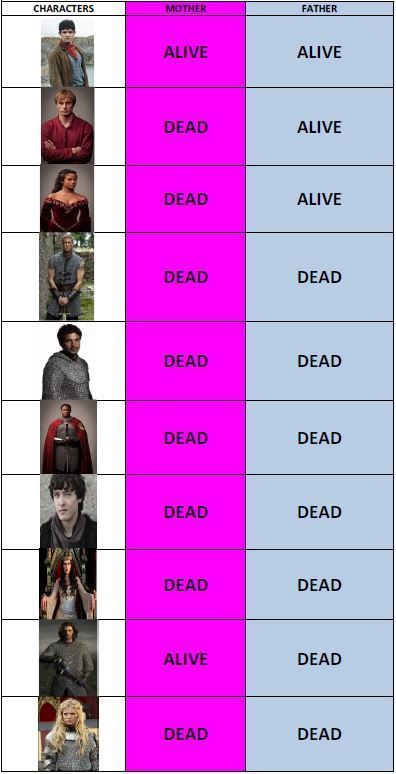
Even though Merlin is the only character whose both parents were alive, he was still raised by his mother as a single parent. The episode where Merlin meets his father, the father ends up dying.
Morgana was initially introduced as an orphan but we come to know later on that Uther is her father.
The psychological impact of being raised as an orphan and / or single parent manifests in very interesting ways among the characters, however this phenomenon deeply affects Arthur Pendragon.
Uther is a typical distant and repressive father who has channeled all his hopes and emotions on Arthur.
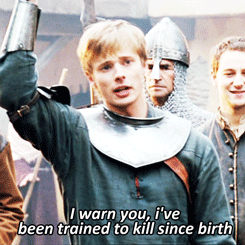
This style of upbringing however has left his son emotionally repressed and the absence of a doting mother figure has rendered him needing to be tended to like a child along with major abandonment issues. His psychosexual development couldn’t follow the normal path, as he never had the chance to experience and overcome the attraction to his mother. As Uther had to play the part of both mother and father, we could say that Arthur didn’t successfully resolve his Oedipus complex. This manifests in the form of Arthur constantly seeking attention from Merlin from the moment Merlin becomes his servant. Merlin basically acts as his nanny from waking him, to bathing him, to dressing him, to feeding him and everything in between. AND THIS IS FOR A FULL GROWN ADULT AND NOT A CHILD !
SEASON 1 EPISODE 1 ENDS WITH SOMEONE COMING INTO GAUIS CHAMBERS SAYING ARTHUR IS LOOKING FOR MERLIN. LIKE REALLY ARTHUR YOU CANT GO ONE EPISODE WITHOUT HAVING MERLIN WAIT ON YOU HAND AND FOOT!!!
People can excuse this behavior stating Arthur is a royal and hence it is normal for royals to be tended to constantly by their servants. However you never see Uther being tended to hand and foot like Arthur does. Uther even comments that Arthur is strangely fond of the boy.
In addition, Arthur throws a tantrum whenever Merlin goes missing highlighting his need to be nurtured and looked after.
In the The Hollow Queen episode where Merlin goes with Daegal Arthur literally seems exasperated over Merlin’s disappearance searching the whole castle like a lost child. He even has Gwen and Gauis replicate some of Merlin’s duties for him.
In the Diamond Of The Day Episode 1, when Merlin tells Arthur he wont be going to Camalan, Arthur cannot bring himself to say he needs Merlin with him but chooses to express his hurt by calling Merlin a coward.
youtube
Arthur fear of losing people close to him is a running theme in the series even at his own deteriment.
Arthur goes to help & rescue Merlin and Gwen even when Uther forbids it. Arthur goes to help & rescue his knights even when Merlin disapproves. Arthur trusts Aggravaine so readily because he is his kin and Arthur is traumatized and vulnerable after Uther’s death. Arthur even agrees to legalize sorcery because he thinks it will save Uther’s and Modred’s lives.
Overall this series has such rich and complex themes .
No wonder that even after 10 years since the series ended, it is still trending strong !!!
#arthur pendragon#bradley james#merlin bbc#merthur#gay subtext#lgbtqia shows#queer coding#colin morgan#merlincersei#Youtube#merlin meta
52 notes
·
View notes
Text
cont. x @berylcluster

There had to be a science to it, something beyond Clark's understanding and something far beyond what he was willing to care about beyond as a passing curiosity. Two individuals one might typically fall over themselves trying to approach if separated, suddenly deemed completely unapproachable as soon as they were interacting with one another.
Clark had come to people watch, not be accosted by them; he seemed more than willing to take a good tongue lashing if she'd shield him from any further unwanted attention.
❝ As good as my relationship was with my mother, I'm terribly afraid I missed out on the whole Oedipus Complex train. ❞ his practical monotone was grating, he sounded like he was constantly tired. The obnoxious world-weary sort.
❝ Strong opening line though. Smart. Men and their mothers. A variety of reactions you could get, but you'll always get a reaction. ❞ he reached for his drink, cast his gaze off elsewhere across the room at the patrons that stuck closer to the edges than wandering inward.
His gaze finally flickered to her and he tilted his head some, let his gaze travel up and down in a single sweep. He hummed. ❝ I don't think I can poke holes in a bubble long burst. ❞
Another sweep of the room, another tired exhale. What had meant to be an excursion to give himself a forced break from his work had just served to dampen his mood further, drain him further.
❝ I don't know, darling. Maybe I'm projecting. Maybe I need to say it out loud to remind myself? Maybe I'm looking for some sort of comradery in shared shitty narratives? Does it matter? ❞
He sat back some, spun his glass idly a few times. ❝ If you already know, why does hearing it bother you? ❞
#he yappin to avoid yappin to fREAKS who want to freak him lmaooo#(;ic)#(;ask)#berycluster: jennifer
4 notes
·
View notes
Note
"But, before I even begin to tell the story, let me just mention that, Hamlet’s obsession with his mother, Gertrude, is so strong that Freud himself linked their relationship with his Oedipus Complex (here’s another play I should write about, Sophocles’ Oedipus Rex)."
That is an absolutely beautiful thing to learn when a surprising amount of your personal vision of Arthuriana is based on The Once and Future King by T.H. White, in which the relationship between Mordred, King Arthur's tragic bastard, and Morgause/Morgawse, his mother and one of Arthur's half-sisters, is 100% a Freudian mess.
Honestly, I read that passage and immediately thought of this quote:
"People write tragedies in which fatal blondes betray their paramours to ruin, in which Cressidas, Cleopatras, Delilahs, and sometimes even naughty daughters like Jessica bring their lovers or their parents to distress: but these are not the heart of tragedy. They are fripperies to the soul of man. What does it matter if Antony did fall upon his sword? It only killed him. It is the mother's not the lover's lust that rots the mind. It is that which condemns the tragic character to his walking death. It is Jocasta, not Juliet, who dwells in the inner chamber. It is Gertrude, not the silly Ophelia, who sends Hamlet to his madness. The heart of tragedy does not lie in stealing or taking away. Any feather-pated girl can steal a heart. It lies in giving, in putting on, in adding, in smothering without the pillows. Desdemona robbed of life or honour is nothing to a Mordred, robbed of himself—his soul stolen, overlaid, wizened, while the mother-character lives in triumph, superfluously and with stifling love endowed on him, seemingly innocent of ill-intention."
Mordred's relationship with his mother in TOaFK is INCREDIBLY fucked-up and fascinating, btw. And as canon as it can go without ever being shown onscreen. After her death, even Arthur himself and one of Mordred's half-brothers, Gawain, eventually conclude and explicitly state that he must have been in love with her and jealous of Arthur for having had a one-night stand with her as a young man.
Although love may not be quite the right word for such a mess of emotional manipulation, psychological abuse, and obsession... not that Gawain and the rest of Mordred's half-brothers are that much better off in that respect, lol.
Nonie, I'm not gonna lie: I know nothing of Arturian myths except for what I learned in BBC's Merlin (which did have pretty incestuous vibes going all over the place). I'll definitively check The Once and Future King. Half-siblings canonically having sex and lot of submet between a mother and son? SIGN ME UP. Also seems like Mordred is another candidate to name the Oedipus Complex.
"It is the mother's not the lover's lust that rots the mind. It is that which condemns the tragic character to his walking death. It is Jocasta, not Juliet, who dwells in the inner chamber. It is Gertrude, not the silly Ophelia, who sends Hamlet to his madness."
I love this part of the quote, it's just beautiful and perfectly explain's the tragedy of Hamlet. Thank you for bringing this to my attention.
7 notes
·
View notes